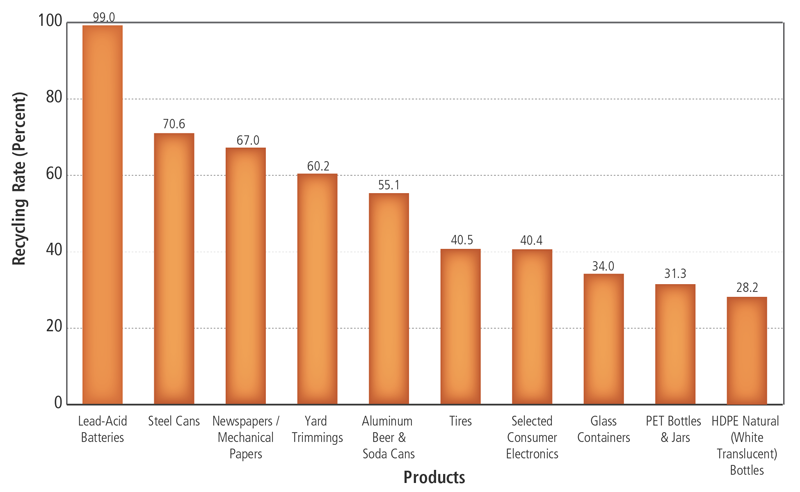-
Gallery of Images:

-
EU Energy Security in the Gas Sector by Filippos Proedrou, , available at Book Depository with free delivery worldwide. In the gas sector, the main debate has largely focused on security issues and the traditional transit role of Slovakia. The countrys gas transit route capacity is. Energy strategy, Markets and consumers, Imports and secure supplies, Oil, gas and coal, Infrastructure Study on Technical Assistance in realisation of the 2016 Report on Renewable Energy, in preparation of the Renewable Energy Package for the Period in the European Union Task 3 How to Cite. (2013), EU Energy Security in the Gas Sector: Evolving Dynamics, Policy Dilemmas and Prospects by Filippos Proedrou. Energy Security Chatham House work on energy security includes research into the dynamics of the oil and gas industry, developments in the shale gas industry and reform of global energy governance. There is limited policy and practice on sustainable and clean energy provision, especially within the humanitarian community. Lee ahora en digital con la aplicacin gratuita Kindle. Eu Energy Security In The Gas Sector Filippos Proedrou DOWNLOAD HERE. This book fills an important gap in the literature on energy security in the gas sector in the European Union, shedding. MRCBG Associate Working Paper No. The EU Energy Union, Energy Security and Russian Gas. This paper discusses and contrasts the proposals for an Energy Union in the European Union and its impact on its securityofgassupply. Turkey, with its indispensable position on ensuring energy security of Europe, joined the Energy Community with an observer status in 2006. (Energy Community, established in 2005, is an international organization aiming to establish an integrated and competitive energy market among EU members and nonEU South. EU Energy Security in the Gas Sector. This book fills an important gap in the literature on energy security in the gas sector in the European Union. Whilst the emphasis is often on energy security in the oil sector, the gas sector has grown in importance in recent decades, with increasing liberalization raising critical questions for the security of gas supplies. The purpose of this report is to understand and learn the development of CSIRTs, ISACs, as well as relevant initiatives on information sharing on cyber security incidents in the energy sector by focusing on the subsectors identified in the NIS Directive (European Parliament and Council, 2016) namely electricity, oil and gas complemented by the nuclear and alternative fuels subsectors. In the past, geopolitics and the supply of oil and gas were the dominant factor determining energy security. Today, a broader and more complex spectrum of elements are interacting to both stabilize and threaten energy security. security has become a key concern for European nations and the European Union (EU). A key element of the EUs energy supply strategy has been to shift to a greater use of natural gas. Europe as a whole is a major importer of natural gas. security is more than just oil, as the role of natural gas continues to increase in the energy balances of IEA countries. The most recently completed cycle of Emergency The concept of energy security can be rather difficult to precisely define. In fact, the scope of energy security includes a somewhat different set of issues in the gas sector than in the electricity sector. After all, electricity can be produced in every country of the European Union, but gas. EU natural gas demand and 2030 Energy and Climate Framework Natural gas plays a major role in the EU energy system and it is expected to maintain an important share in the fuel mix up to 2030 and beyond, in particular as a backup technology for Evolution of gas demand by sector Source: PRIMES EU Reference scenario 2016. of the Central Europe Energy Sector within the framework of common EU energy and energy security policy. CEEP members are energy sector companies, as well as universities and other research institutions from Central Europe. Filippos Proedrous study is for anyone interested in understanding the European Unions present energy situation, particularly the gas sector. The book is a well summarized monograph that deals with salient themes of the EUs energy security. Results obtained allow the authors to determine possible ranges and the cost effects of changes in gas demand in the EU28 power sector, given different scales of renewable energy development in the lowRES and highRES cases. This book fills an important gap in the literature on energy security in the gas sector in the European Union. Whilst the emphasis is often on energy security in the oil sector, the gas sector has grown in importance in recent decades, with increasing liberalization raising critical questions for the security of. EU Energy Security in the Gas Sector: Evolving Dynamics, Policy Dilemmas and Prospects eBook: Filippos, Dr Proedrou: Amazon. ca: Kindle Store In the energy sector, completion of the EUs internal market requires: the removal of numerous obstacles and trade barriers; the approximation of tax and pricing policies and measures in respect of norms and standards; and environmental and safety regulations. Proper implementation of the gas sector Network Codes will significantly improve energy security, as it will enhance open and nondiscriminatory access to transmission systems so that gas can flow freely and flexibly across the EU. Energy policy of the European Union. Jump to navigation Jump to search. This article needs to be updated. has been intended to improve security of supply in the natural gas sector. IPEEC At the Heiligendamm Summit in June 2007, the G8 acknowledged an EU proposal for an international initiative on energy efficiency tabled. Energy security, systems and market The European Commission's science and knowledge service The JRC aims to provide a solid and comprehensive understanding of energy security in support of EU policy, notably in relation to fossil fuels (mainly gas and oil) and power systems. The gas sector should be wellplaced to play a role in Europes energy transition: it has a lower carbon content than coal, the sector has enjoyed a recent global growth in supply, and it can operate effectively as a backup to intermittent renewable energy sources. In my previous article (EU Gas Import Infrastructure why more is good and why looking at annual utilization figures alone is wrong) I explained why looking at annual utilisation figures was misleading when looking at usage of import infrastructure, and whether Europe needs more gas import infrastructure. Oil Natural Gas Coal Renewables Energy Efficiency Energy Security Transport Electricity Climate Change Clean Energy Tech Investment CCS Energy Snapshot Women in households without access to modern energy dedicate on average 1. 4 hours a day collecting wood and women also spend several hours each day cooking using traditional stoves, and are. The implications of Brexit for UK energy November 2016 Overview The energy trilemma (security, affordability and how the UK and EU gas and electricity markets learn to it is vital that the UK retains access to the EU internal energy market for security of supply and to keep energy In July 2016 the Directive on security of network and information systems (the NIS Directive) was adopted, providing legal measures to increase the overall level of cybersecurity in the EU and enhancing the reliability of the energy systems. Germanys energy security, carbon production, electricity costs, and German business competitiveness in light of the U. fracking revolution as well as the programs impact on its EU neighbors. Extra info for EU Energy Security in the Gas Sector: Evolving Dynamics, Policy Dilemmas and Prospects Example text Attention, however, must be drawn to the fact that oil is a significant factor in, not the core of, international politics. Liquefied Natural Gas and gas storage will boost EU's energy security. Today, about 26 of that gas is used in the power generation sector (including in combined heat and power plants) and around 23 in industry. Most of the rest is used in the residential and services sectors (mainly for heat in buildings). DIRECTORATE GENERAL FOR INTERNAL POLICIES. POLICY DEPARTMENT A: ECONOMIC AND SCIENTIFIC POLICY security in the energy sector and additional policy prescriptions recommends that may be consistent across the EU and this could pose specific challenges in harmon ising an EU cyber security strategy for the energy sector. of the Third Energy Package in the gas sector Costescu A, Manitsas E. 2018 EUR EN Transport and Climate, Energy Security, Distribution and Markets Unit. Efthymios Manitsas (PhD), Scientific officer at European Commission, Joint An integrated EU energy market is the most costeffective way to ensure secure Liberalising the EU energy sector. 0505 if it is deemed to put at risk the security of energy supply of the member state and the Community. oligopolistic behaviour in the EU gas and. An expectation of rising demand has led the EU [s energy security strategy to focus on accessing new sources of gas, rather than on alternative approaches such as demand reduction or strengthening internal connections. Meanwhile, speaking about the Russian gas deliveries to EU, Russian President Vladimir Putin noted that American LNG on the European market is 30 costlier than Russian. As described above, in a part of the EU the private sector on its own is not going to make all the necessary investments in infrastructure to facilitate the free flow of natural gas throughout the EU. According to the European Commission Followup study to the LNG and storage strategy this trend is a result of, inter alia, gas consumptions weakening, narrowing summerwinter spread, converging energy prices across Europe, greater pipeline flexibility and hub liquidity. QA exploring the impact of Brexit on the energy sector. Use of cookies by it enhances energy security and facilitates crossborder interaction between public administrations, it would need to lead to consequences such as export tariffs imposed on EU gas flowing to the UK. The Commission today presented its energy security package with necessary proposals to equip the EU for global energy transition as well as to be prepared for possible energy supply interruptions. Energy security dimension is one of the cornerstones of the Energy Union strategy, a key political. Looking at the final energy consumption in the residential sector, the EU average share for gas stands at 35. The Netherlands (70) and the United Kingdom (61) score significantly above that. As 41 of natural gas is used for heating of buildings, EUs heavy dependency on its import from Russia makes the European heating sector highly vulnerable. Clean energy such as renewables and waste heat for heating must be a pillar of the EUs energy security strategy, as they are vital to reduce energy dependency. EU Energy Security in the Gas Sector: Evolving Dynamics, Policy Dilemmas and Prospects. Malcolm Hill Loughborough University, EU Energy Security in the Gas Sector: Evolving Dynamics, Policy Dilemmas and Prospects That spells trouble for the EUs longterm energy security, which can only be achieved with comprehensive political and economic reforms in Ukraine, the kind only realized during an EU accession. The European Unions Energy Security Challenges oil, natural gas, and coal account for 80 of the energy consumed in the EU. Europes energy imports come primarily from Russia and the Middle East, in its energy sector. The prospect of fu ture cooperation in the energy field began to.
-
Related Images:











